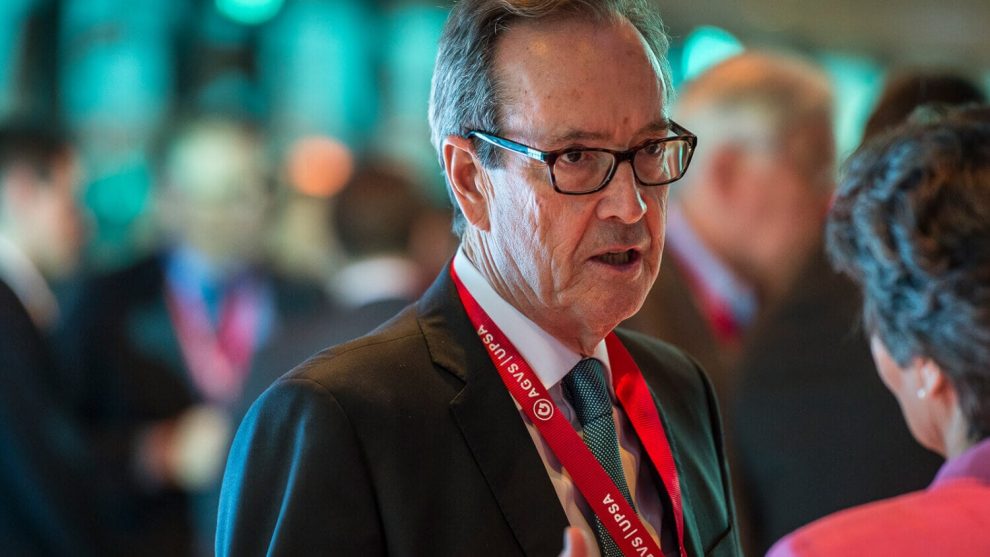CO2 law: AGVS remains open to innovation
CURRENTLY IN TALK There are two days left until the end of the vote on the new CO2 law on June 13. AGVS Central President Urs Wernli fears higher burdens for the automotive industry in the future if the CO2 law is accepted. The CO2 vote is just around the corner. What thoughts are you thinking about in view of this referendum? Urs Wernli: "Switzerland is a beautiful [...]

The CO2 vote is just around the corner. What thoughts are accompanying you with regard to this ballot?
Urs Wernli: "Switzerland is a beautiful country. We have a high quality of life and an intact environment. We should be happy about that. The revised CO2 law threatens more bureaucracy and higher costs. We should avoid that."
... you'll have to explain that in more detail, please.
Urs Wernli: "With bans, regulations and requirements, a new behavior is to be imposed on the economy and the population. That worries us. What advice would you give the voters for the vote? By all means go to the polls and reject the law. Motivate friends and acquaintances to vote in our favor."
What do you dislike most about the CO2 law?
Urs Wernli: "In particular, the fuel price increase of up to twelve centimes per liter. This is unfair and disproportionate. This leads to a higher burden for many SMEs and also for our members, which makes the already difficult situation even more difficult."
... and what else do you dislike?
Urs Wernli: "In addition, the revised CO2 law disregards the will of the people, because in the vote of February 12, 2017, the voters decided to allocate the CO2 penalty payments of the automobile importers to the National Roads and Agglomeration Transport Fund NAF. After just over four years, this is all water under the bridge and no longer applies."
"In the future, half of the revenue is to be diverted to the new climate fund to be created, the purpose of which is subject to the arbitrariness, whims, and majorities of Parliament. This is more than a slight, this is a clear disregard for the will of the people."
What does it mean for the automotive industry if the CO2 law is rejected at the ballot box?
Urs Wernli: "In the event of rejection, the important issues such as synthetic fuel production from renewable energy sources, further expansion of electric charging stations, promotion of alternative drive systems such as gas-powered vehicles, and energy efficiency programs for the existing vehicle fleet such as the AGVS AutoEnergieCheck must be tackled quickly."
The CO2 limit of 118 grams per kilometer from 2021 has been set and with it the penalties. Who will pay for these payments in the end?
Urs Wernli: "In the end, it's the customer who buys a more heavily motorized vehicle."
The negative consequences of climate change should not be minimized. However, it is also undisputed that the share caused by Switzerland is less than one percent. So why this almost pathological hysteria?
Urs Wernli: "On the one hand, because the media permanently accuse people of being very much to blame for the development of the climate and spread a kind of doomsday mood. On the other hand, fear is stirred up by the portrayal of the dramatic effects of climate change."
Opponents of the bill claim that if the CO2 law is adopted, a family of four would incur additional costs of 1,000 francs per year. Is this figure based on serious calculations?
Urs Wernli: "I have not made these calculations. But it is undoubtedly a fact that everything will become more expensive. The homeowners' association HEV, for example, calculates that rents for a 100m2 apartment will increase by an average of 140 francs per month as a result of the forced renovations, according to a study by the Federal Office of Energy Bfe."
Will the AGVS's transport policy direction change depending on the outcome on June 13, 2021?
Urs Wernli: "No. The AGVS is and remains open to innovation, but rejects the measures that mean one-sided redistribution and do not achieve any improvement."
Source Interview: Auto Gewerbe Verband Schweiz









